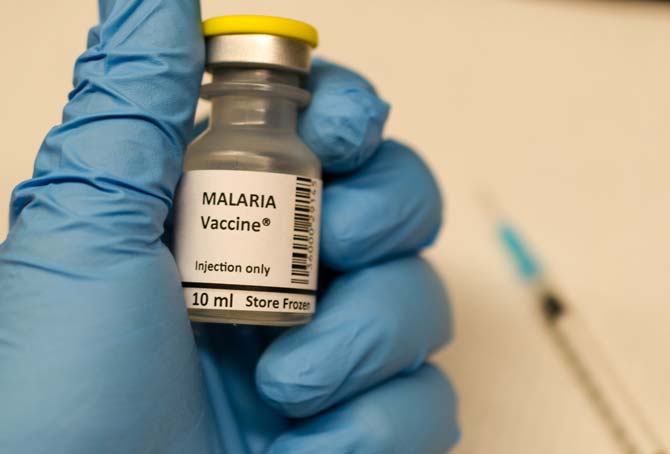The world’s first malaria vaccine, RTS,S pilot programme has been launched. It was launched in Malawi, making it the first of three countries in Afric
The world’s first malaria vaccine, RTS,S pilot programme has been launched. It was launched in Malawi, making it the first of three countries in Africa in which the RTS,S vaccine will be made available to children up to two years of age. The other two African countries, Ghana and Kenya, will introduce the vaccine in the coming weeks.
RTS,S is a scientific name given to the malaria vaccine and represents its composition; the ‘R’ stands for the central repeat region of Plasmodium (P.) falciparum‘circumsporozoite protein (CSP); ‘T’ for the T-cell epitopes of the CSP;and the‘S’ for hepatitis B surface antigen(HBsAg).
Malaria remains one of the world’s leading killers, claiming the life of one child every two minutes, according to the World Health Organisation (WHO). Most of the deaths are in Africa, where over 250 000 children die from the disease every year. Children under five are at greatest risk of its life-threatening complications. Worldwide, malaria kills 435 000 people a year, most of them children.
According to WHO, the vaccine, RTS, S is an innovation milestone of three decades in development and is the first and to date the only, vaccine that has demonstrated it can significantly reduce malaria in children.
“In clinical trials, the vaccine was found to prevent approximately four in 10 malaria cases, including three in 10 cases of life-threatening severe malaria,’’ a WHO statement said.
The pilot programme is designed to generate evidence and experience to inform WHO policy recommendations on the broader use of the RTS,S malaria vaccine. It will look at reductions in child deaths, vaccine uptake, including whether parents bring their children on time for the four required doses and vaccine safety in the context of routine use. The vaccine is a complementary malaria control tool to be added to the core package of WHO-recommended measures for malaria prevention.
These other measures include the routine use of insecticide-treated bed nets, indoor spraying with insecticides and the timely use of malaria testing and treatment. Financing for the pilot programme was mobilised through collaboration among three key global health funding bodies, including Gavi, the Vaccine Alliance; the Global Fund to Fight AIDS, Tuberculosis and Malaria and Unitaid. Also, WHO, PATH and GSK are providing in-kind contributions.
